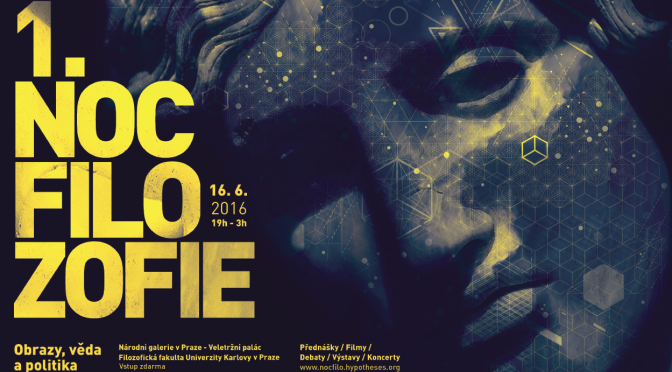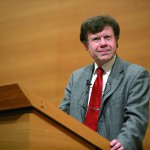Gender jako nadnárodní platforma. Sociologie šíření feministického vědění ve východní Evropě v 90. letech 20. století
Osa I – Přemístění, vykořenění, odchýlení: lidé, vědění, praktiky.
Kontakt: ioana.cirstocea@cefres.cz

Moje práce se zaměřuje na šíření a institucionalizaci genderových studií v postsocialistickém kontextu, a to v rámci demokratizace a obecněji také integrace východoevropských společností do globalizovaných struktur 90. let minulého století. Tato studia, jež byla podporována systematickou technokratickou podporou práv žen prostřednictvím mezinárodních programů (filantropických, evropských a OSN) a zároveň byla předmětem různých lokálních úprav a zvyklostí, odrážejí společenské procesy budování nadnárodních ideových a zájmových společenství.
Má hypotéza tudíž zní, že kategorie genderu se ve východní Evropě vynořila a stala se legitimní intelektuální problematikou díky nadnárodní „platformě“, jež podléhá zároveň akademickému, aktivistickému a technokratickému způsobu uvažování. Tuto nadnárodní “platformu“ tvoří společenský prostor, jenž je definován životními osudy různých aktérů (feminističtí průkopníci, zakladatelky nových vzdělávacích programů a výzkumných center a odbornic na problematiku rovnosti) situovaných v různých národnostních kontextech. Aniž by byl tento nadnárodní prostor vyjádřen v podobě formalizovaných kolektivů, utváří se okolo institucí (aktivistické sítě, akademické iniciativy, programy mezinárodních organizací) a událostí (mobilizace, vědecké projevy, projekty a kolektivní publikace).
Při studiu rozsahu a strukturální dynamiky, vycházím z prozopografického přístupu, kladu důraz na pluralitu míst či měřítek pozorování a jiné teoretické nástroje čerpající z historie společenských a humanitních věd studujících problematiku mezinárodní výměny.
CV
Současná situace
Adresa
EHESS (kancelář 503), 190-198, Avenue de France, 75013 Paříž. Kontakt: Ioana.Cirstocea@misha.fr Osobní profil : http://www.cessp.cnrs.fr/spip.php?rubrique262
Dosažené vzdělání
2004 : doktorandské studium (sociologie), École des Hautes Études en Sciences Sociales, Paříž.
2000 : DEA (sociologie), École des Hautes Études en Sciences Sociales, Paříž.
1996 : magisterské studium (kulturologie), Univerzita v Bukurešti.
1995 : magisterské studium – (francouzská literatura – lettres francaises), Univerzita v Bukurešti.
Ocenění
2013 : Frankofonní cena pro mladé vědce (Prix de la Francophonie pour jeunes chercheurs).
2004 : Zvláštní uznání za nejlepší dizertaci obhájenou na EHESS.
Pracovní zkušenosti
Výzkum
Od r. 2006 : výzkumná pracovnice v CNRS (oddělení 40) ; členka UMR 8209 CESSP v Paříži od 1. října 2015, dříve členka UMR 7363 SAGE ve Štrasburku ; výzkumná pracovnice první třídy od r. 2011.
2013-2016 : koordinátorka programu ANR „GLOBALGENDER. „Prolínající se pohledy (Regards croisés) na globalizaci gendru“ (2013-2016, meziuniverzitní společnost Maison interuniversitaire des sciences de l’homme MISHA ve Štrasburku).
2011-2013 : spoluodpovědná pracovnice spolu s Dorotou Dakowskou (Univerzita ve Štrasburku) na projektu „Akademie ve výstavbě. Transformace středoevropských univerzit po r. 1989“ („L’Académie en chantier. Transformations des universités centre-est européennes depuis 1989“). (Vzdělávací a výzkumný program CIERA – Interdisciplinární studijní a výzkumné centrum v Německu).
2013-2015 : Členka programu „Reformovat stát pomocí trhu. Ekonomizace veřejného sektoru v postkomunistické Evropě.“(Réformer l’Etat par le marché. L’économisation’ du secteur public dans l’Europe postcommuniste) (MISHA ve Štrasburku, koordinátorka programu Valérie Lozac’h).
2010-2013 : Členka programu ANR „EureQUA. Kvantifikace Evropy“ (Quantifier l’Europe) (Univerzita v Nantes-ENS Paříž, koordinátorka programu Martina Mespouletová).
Mezinárodní výzkumné pobyty
2014 (září-listopad): Centrum pro Evropská a Středozemní studia, Univerzita v New Yorku (program „Podpora mezinárodní mobility CNRS“).
2010 (září-říjen): Institut pro výzkum žen (Institute for Research on Women), Rutgers State University, New Jersey (program „hostující světoví vědci“; Fulbrightovo stipendium).
2008 (únor-červen): Central European University, Gender Studies Department, Budapešť (hostující vědec).
2005-2006 (říjen-červenec): Fakulta společenských, politických a ekonomických věd, Université libre de Bruxelles (postdoktorální stipendium Univerzitní agentury frankofonie).
Pedagogické aktivity
Depuis 2013 : Výzkumný seminář „Různé Perspektivy na globalizaci gendru“ („Regards croisés sur la globalisation du genre“, EHESS, Paříž (spolu s Delphine Lacombe a Elisabeth Marteu, v rámci programu ANR « GLOBALGENDER » a magisterského studia „Gendre, politika, sexualita“ EHESS.
2008-2015 : Kurzy na univerzitě ve Štrasburku (Institut politologických studií a Institut evropských studií): „Úvod do výzkumu ve společenských vědách“; „Gender a politika“; koordinátorka tuctu studentských výzkumných prací.
Výběr z publikační činnosti
Publikace
Faire et vivre le postcommunisme. Les femmes roumaines face à la « transition », Brusel, Éditions de l’Université de Bruxelles, 2006.
Články
- „La ‘sororité’ à l’épreuve – pratiquer l’internationalisme féministe au lendemain de la guerre froide“, Critique internationale 66, leden-březen 2015 (tématické číslo „Communismes et circulations transnationales“ koordinované Paulem Boullandem a Isabele Gouarné), s. 85-104.
- „Soi-même comme un autre : l’individu aux prises avec l’encadrement biographique communiste“ (Rumunsko, 1960-1970), Bernard Pudal (dir.), Le sujet communiste. Identités militantes et laboratoires du « moi », Presses Universitaires de Rennes, 2014, s. 59-78.
- „Les restructurations de l’enseignement supérieur en Roumanie après 1990 : apprentissage international de la gestion, professionnalisation de l’expertise et politisation de l’enjeu universitaire“, Revue d’études comparatives Est-Ouest, Vol. 45, 2014, č. 1, s. 125-163
- „Cooptation et adhésion des femmes au Parti communiste roumain“, in Rose-Marie Lagrave (dir.), Fragments du communisme en Europe centrale, Paříž, Editions de l’EHESS, 2011, s. 143-191.
- “The Transnational Feminism in the Making: the Case of Post-communist Eastern Europe”, in C. Fillard, F. Orazi (dir.), Exchanges and Correspondence: the Construction of Feminism, Cambridge, Cambridge Scholars Publishing, 2010, s. 64-83.
- „Eléments pour une sociologie des études féministes en Europe centrale et orientale“, International Review of Sociology/ Revue internationale de sociologie, 20, č. 2, 2010, s. 321-346.
- Výzkumná pracovnice v CNRS, členka UMR 8209 CESSP Paříž (CNRS EHESS-Paříž 1, tým CSE).
- Koordinátorka programu ANR « GLOBALGENDER. „Prolínající se pohledy (Regards croisés) na globalizaci gendru“ (2013-2016, meziuniverzitní společnost Maison interuniversitaire des sciences de l’homme MISHA ve Štrasburku).
- Členka vědecké rady časopisu L’Homme et la société.





